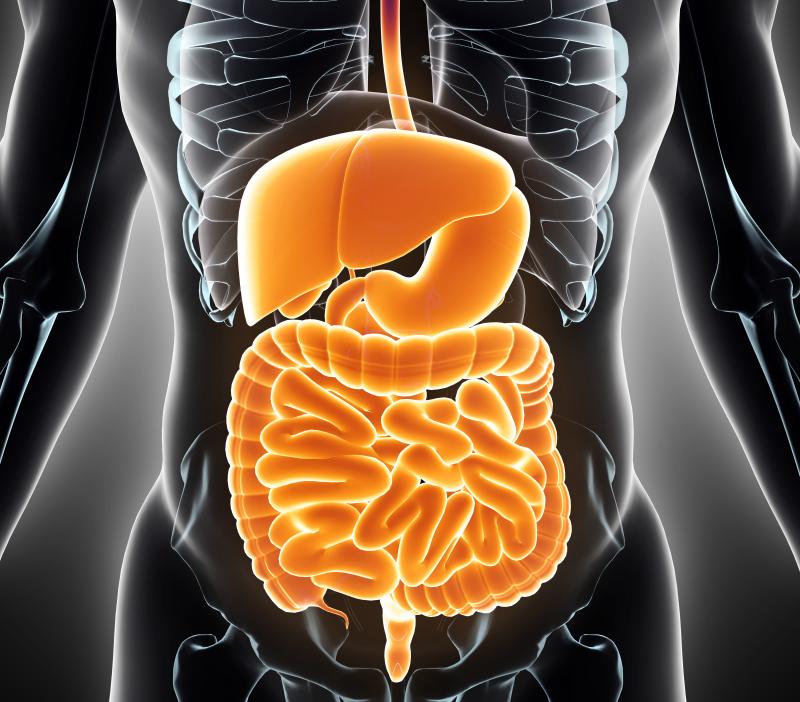
Use of ustekinumab results in clinical remission, with successful maintenance until week 48, and improves laboratory biomarkers of disease activity in patients with moderate-to-severe Crohn’s disease (CD) who are refractory to antitumour necrosis factor (anti-TNF) therapy, according to a real-world study in Brazil presented at the 2019 Advances in Inflammatory Bowel Disease (AIBD) Annual Meeting.
Ustekinumab was given to 161 patients (mean age, 38.2 years; 55.3 percent female; disease duration, 10.3 years) during the study period. Of these, 58.4 percent had previous surgeries, 46.6 percent had perianal disease, 55.5 percent had anaemia, and 16.2 percent were smokers.
Most of the patients received 90-mg ustekinumab every 8 weeks (97.4 percent) during maintenance and had prior exposure to biological therapy (85.7 percent). Forty-four patients were previously exposed to one biologic, 78 to two biologics and 16 to three biologics. [AIBD 2019, abstract P065]
At baseline, 38.5 percent of patients currently or previously presented extra intestinal manifestations, with mean Harvey-Bradshaw index (HBI) of 10.1 and mean C-reactive protein (CRP) of 21.3 mg/L.
Of the patients, 76.9 percent achieved clinical response and 38.9 percent achieved clinical remission at week 8. Clinical remission was maintained in 53.1 percent at week 16, in 53.9 percent at week 24 and in 62.5 percent at week 48. CRP decreased to 14.4 mg/L at week 8 and further to 7.7 mg/L at week 48.
About one in four patients (28.6 percent) experienced adverse events. Treatment with ustekinumab was stopped in 24 patients: 13 due to surgery and/or lack of response, three due to pregnancy, seven due to lack of access and one due to depression. No new safety signals were found.
“Both ustekinumab induction and maintenance regimens until week 48 were overall well tolerated,” the researchers said. “These results support a favourable safety and efficacy profile.”
In addition, statistical analysis revealed that better outcomes were associated with inflammatory behaviour, naïve or prior exposure to one biological therapy, and disease duration <2 years.
In this retrospective chart review and prospective study, the researchers examined patients with moderate-to-severe CD initiating on ustekinumab (intravenous infusions followed by scheduled subcutaneous injections) from 11 IBD referral centres between November 2017 and April 2019.
Clinical response and remission (based on HBI) and CRP levels were assessed. Clinical remission was evaluated at weeks 0, 8, 16, 24 and 48, and CRP at weeks 0, 8 and 48. Statistical analysis was also conducted, with the data presented as observed.
“Ustekinumab is a fully human monoclonal antibody against IL-12/23 approved in Brazil for the treatment of moderate-to-severe CD in November 2017,” according to the researchers. “Ustekinumab has demonstrated its efficacy in induction and maintenance therapy for patients with CD.”